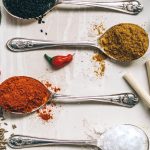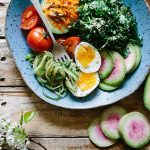What’s The Dirt On Juices?
One of the main things any dietitian will tell you is that in order to stay fit and healthy, you have to eat a balanced diet. But sometimes you have so many things going on, that eating breakfast and planning your meals might seem like the last thing on your mind. That’s when you might get attracted to one of those magical diets or remedies that promise to make you slimmer and provide you with all the antioxidants that will help you look and feel wonderful.
One of these great fads is juice-drinking. Have you noticed that lately good nutrition seems to be all about drinking juice? Drinking juices can have many advantages. For instance, when you drink smoothies or juices made from whole produce you’re efficiently drinking your 5 a day, right? It’s fast, (except when you have to clean your juicer), it’s highly nutritious, high in antioxidants, and you get all the vitamins and minerals you need. It sounds like it’s the best thing since the Aztecs invented chocolate.
Well, not quite! Drinking juice isn’t always as healthy for you as the media and marketing want you to believe. Read on to find out why…
The Colours In Your Cup Matter
One of the first things you learn in primary school is that fruits and vegetables are essential in a healthy diet. What they don’t always go into detail on is why that is. Eating a variety of these foods you’re obtaining necessary vitamins and minerals, antioxidants, fiber, water, and other functional bio-compounds that make your body work perfectly. Complicated? Yes, but luckily nature has colour-coded fruits and vegetables for us so we can tell which nutrients are contained in our foods!
Drink The Rainbow
Purple, blue and red produce including berries, eggplants, red cabbage, red beets, red onions and plums have all one thing in common: they all have an antioxidant called anthocyanin. This natural component can help you prevent cancer and cardiovascular diseases and even help you prevent or control diabetes.
The oranges found in sweet potatoes, peaches and carrots indicate they all have beta-carotenoids which help build vitamin A and is a great support for your immune system so that you’ll be more resistant to bugs. Deep, rich reds, such as cherries, are often rich in melatonin: a natural hormone that can help you sleep better and is great for avoiding the awful effects of a jet-lag.
Don’t Juice Away The Nutrients
Now that we’ve looked at the details about the importance of eating fruits and veggies, it’s easier to explain the pros and cons of what happens when you make them juice or substitute them completely by these drinks.
When it’s OK to drink juice
Sometimes, fruit juices can equal or surpass whole fruit depending what your body needs. For instance, if you want to get a fast dose of calories, sugar and nutrients or if you are hypoglycemic (low in sugar) juices are a great way to get it. If you’re looking to bulk up or increase your weight, juices can also be a useful addition to a balanced diet.
When it’s not OK to drink juices
- If you’re dehydrated — Your body can only process juice properly by diluting it with water. If you’re dehydrated, the solid particles in juices will only make you more dehydrated.
- If you are diabetic — If you are at risk of type 2 diabetes, drinking juice will elevate the glucose in your blood in a non-healthy way, putting your health at risk.
- If you’re trying to lose weight – Fruit juices contain a lot of sugar and they don’t provide make you feel full, which might trigger cravings and overeating.
Busting The Juice Fad
One of the great things about fruits and vegetables is that thanks to the variety of soluble and insoluble fibres they contain, we gradually absorb all the goodness that comes with them. If we drink them, especially if the juices are made from low-quality produce, much of the nutrients and fibre is lost. When this happens, our bodies absorb the sugar much faster leading to a spike in energy. Although this may be good at first, our energy goes down later leaving us more tired than before.
Due to the increased attention juices have received lately, nutritionists and dietitians have been paying a lot more attention to the associated positive and negative health effects. In some countries, they’ve actually been classified as sugar sweetened beverages, and are often taxed along soft drinks because of the risk factor they represent for obesity.
Drinking a juice cannot replace a balanced meal. Unless you have added some source of protein or healthy fats such as linseeds, chia, yogurt or nuts, your body will simply store all the excess sugar you’re drinking and convert it to fat.
Identifying Unhealthy Food Fads
A great way to tell if a nutrition trend is legitimate or if it’s bogus, try thinking about these 3 questions:
- Is it unbalanced by only focusing on one type of food?
- Does it take a food group (carbohydrates, proteins and fats) out of your diet?
- Does it suggest you buy and eat only a special type of food, supplement or drink?
If the answer to one of these questions is yes, it’s likely that you’re looking at the newest nutrition fad that is less concerned about your health and more concerned with your wallet.
The Whole Fruit And Nothing But The Fruit
This doesn’t mean you should cut juices out of your life completely. What would breakfast be without orange juice, or a hot summer’s day without lemonade? Instead, focus on having them in moderation and as part of a balanced diet. How do you like your fruits and veg? I’d love to read about your ideas and recipes of how to include whole fruit and veggies into your diet while still being healthy and delicious.













